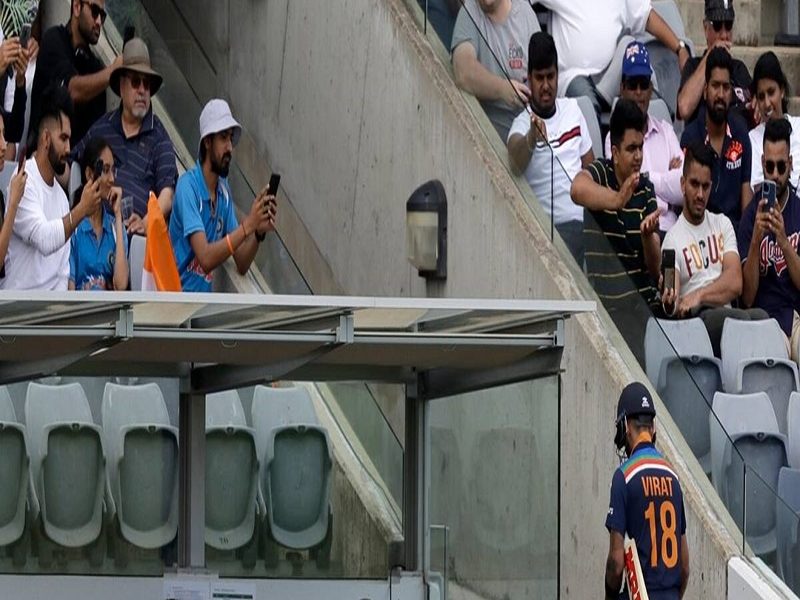In the future fans should vote for subs: The Analyst Simon Hughes

Published by: The Indian Express
T20 was touted as the game’s shortest format, but 2021 is scheduled to see the launch of The Hundred, and the T10 version has already been played in a few tournaments.
Twenty20 cricket has consistently pushed the envelope in introducing innovations into the game. For instance, Big Bash League has introduced new regulations like the ‘X-Factor’, which allows for a substitution after the 10th over, for its upcoming season. Analyst Simon Hughes foresees fans getting more involved in T20 cricket like voting on player substitutions. Apart from on-field innovations, the format is likely to take viewer interaction and participation to the next level, feels former county pacer and celebrated analyst Simon Hughes.
Get the fan involved
For Hughes, giving the keys of decision-making to the fans is the logical next step in T20 cricket’s evolution. “Substituting a player is an interesting idea. It keeps more players involved. A bit like football or rugby. The key is to keep the viewers, whether at the ground or home, engaged or even get them to participate. I can see in the future, something like choosing a player to substitute. You ask the viewer at home, ‘let’s have a vote.’ There are lots of votes on the screen during an IPL game. There’s a way of including the viewer in the decision, so vote for who you think should come in the 11th over to replace a particular player. And then you have to apply that decision to the game,” he tells The Indian Express.
“That would be amazing to get the viewer or spectator to actually help with the decision.”
Don’t stand still
He believes cricket, like a lot of other sports, needs to keep innovating to stay relevant.
“Why cricket has survived for so long is because it’s adaptable. You have to keep innovating. The sports that don’t try to innovate constantly will fall behind. You could say football hasn’t changed much. But they have brought in VAR (Video Assistant Referee). In most sports, you do have to keep innovating to keep it interesting. White-ball cricket can get a bit formulaic, so it’s good to keep trying new ideas. Look at something like Formula One, where they bring in new rules all the time to keep it interesting.”
Don’t dawdle
T20 was touted as the game’s shortest format, but 2021 is scheduled to see the launch of The Hundred, and the T10 version has already been played in a few tournaments. Hughes claims to have felt the need of a 100-ball format and says he even went to the England and Wales Cricket Board (ECB) with a proposal.
“We were starting to see T20 taking a lot of time, because of the stakes. Players were taking a lot of time over the matches, and there were timeouts. They were taking four hours for a match. Someone said ‘why don’t we play 16 overs, and four-over blocks from each end?’. It speeded up the game,” he says.
“That 16 overs was 96 balls, so I went to the ECB in 2015 and said ‘here’s an idea. Why don’t we play 100 balls? It’s much quicker and you bowl 25 balls from one end and then 25 balls from the other.’ And they said ‘we’re quite happy with T20 at the moment’. Then three years later, they announced The Hundred. So, I did have a bit of a premonition about it.”
Star power the key
The success of the venture will be the quality of cricket on display, Hughes feels.
“The key to it, like the IPL, is to get the best players. To get the best players interested. When we had the draft for The Hundred, I talked to all the players. (Joe) Root, (Ben) Stokes, (Jos) Buttler, those sorts of players, they were really excited. Players like being challenged, and being challenged against the best other players,” he said.
T20 is here to stay
But Hughes—who has scripted a book titled New Innings, co-authored by lead owner of Rajasthan Royals Manoj Badale, on the evolution of the sport—doesn’t foresee The Hundred or T10 cannibalising T20 in the foreseeable future.
“I think T20 is a really good format. It has proved to be successful. They just have to keep the momentum going in terms of not taking too long over it. They have to ensure that they keep the game moving. That doesn’t mean reducing the number of overs. Let’s not dawdle. It just means keeping that sort of urgency and intensity going, not taking too long. Otherwise, you start to annoy people and people go home,” he says.
“The point of it is to have a tightly controlled, fast-paced game. You don’t want players wandering about, and people stuck there at 11.30 in the night,” he signed off.